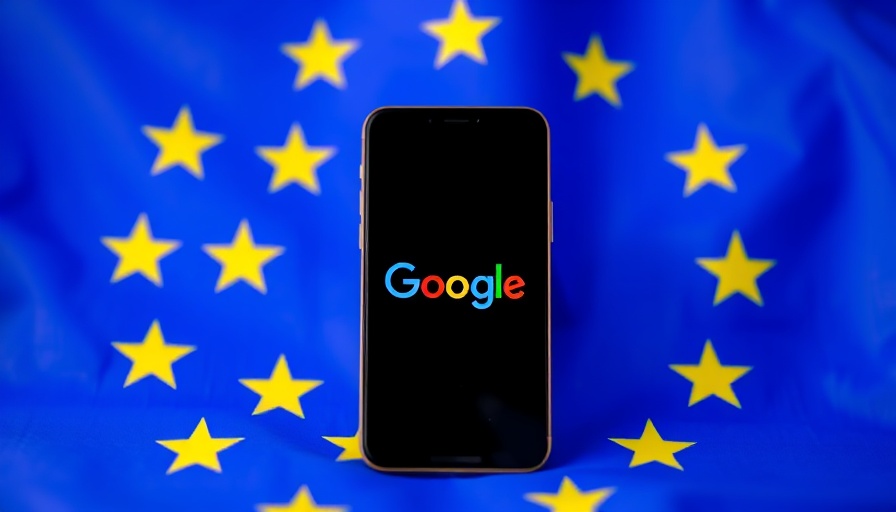
The EU's Bold Move Against Google: A $3.5 Billion Statement
In a landmark decision, the European Commission has imposed a hefty €2.95 billion ($3.5 billion) fine on Google for violating antitrust regulations. This fine is the second largest ever levied against the tech giant, following the precedent set in 2018 when it incurred a fine of $5 billion. The ruling arises from findings that Google abused its dominant market position by favoring its advertising services over competitors, particularly through its ad exchange, AdX, within both its publisher ad server and ad-buying tools. With this fine, the EU is taking a firm stance to ensure that digital markets remain fair and competitive, shedding light on the inherent conflicts of interest in the adtech supply chain.
The Implications of Google's Antitrust Violation
As technology continues to evolve, the implications of this ruling extend beyond just a financial penalty. Google is now tasked with ceasing these self-preferencing practices within 60 days. According to The Wall Street Journal, Teresa Ribera, the EU's executive vice president, has emphasized the necessity for Google to present credible solutions to address these conflicts of interest.
Digital markets should operate on principles of trust and fairness, and when major players like Google disregard these principles, it raises concerns for the entire ecosystem. The persistence of dominant market positions, especially in fields as dynamic as advertising technologies, poses risks to innovation and competition.
US Response: Market Competition Under Fire
This fine has spurred reactions not only from the tech community but also from political leaders. U.S. President Donald Trump criticized the EU's actions, labeling them as unfair penalties against American ingenuity. His comments highlight a broader discourse about global regulatory practices and the implications for tech companies operating internationally.
The reverberations of this decision could pave the way for more stringent regulations aimed at curbing monopolistic behaviors within the tech industry, not just in Europe but also in the United States. As new tech trends emerge, companies must remain vigilant about compliance when operating in a global market governed by diverse regulatory frameworks.
How this Affects Future Tech Developments
As emerging tech trends continue to reshape industries, the scrutiny surrounding Google serves as a cautionary tale for other companies in the tech arena. The principles of fair competition are vital for fostering innovation and ensuring that smaller players have a fair chance to succeed. The EU’s decision could foster an atmosphere of accountability, urging businesses to prioritize practices that do not stifle competition.
Tech enthusiasts and industry professionals alike should pay close attention to the implications of this ruling on forthcoming next-gen technologies and disruptive innovations. With heightened regulatory oversight, the landscape for tech evolution might witness a shift towards increased collaboration rather than competition that undermines ethical practices.
Looking Ahead: The Future of Tech Industries
This ruling raises critical questions about the future of the advertising technology landscape. Moving forward, we can expect more transparency and possibly restructured partnerships among major players. For tech entrepreneurs and startups, the focus will likely pivot towards developing alternative solutions that challenge the status quo while adhering to ethical business practices.
In conclusion, the EU's $3.5 billion fine highlights an urgent call for reform in tech practices. As we leap into the future of technology, maintaining a balance between innovation and fair competition will be paramount for sustainable growth across the industry.
 Add Row
Add Row  Add
Add 




Write A Comment